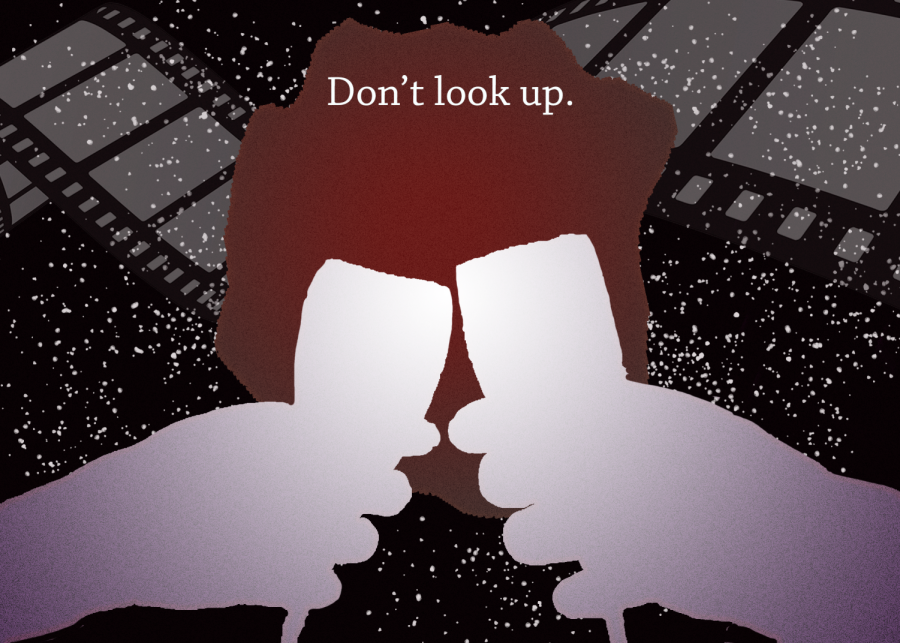Review: “Don’t Look Up” — satirical commentary on climate change gives voice to cynical generation
“Don’t Look Up” is a satirical comedy that was released on Netflix on Dec. 5, 2021. In the plot, co-stars Jennifer Lawrence (Kate Dibiasky) and Leonardo DiCaprio (Dr. Randall Mindy) find out the Earth is six months out from meteoric extinction.
February 3, 2022
First comes denial, then grief, then acceptance. The steadfast cynicism of “Don’t Look Up” portrays an inescapable threat against a society uninterested in its own survival.
In the movie, a planet-destroying meteor is discovered to be hurling towards Earth. As the main characters learn, the Earth will be destroyed in six months. They only have that time to prepare a response.
“Don’t Look Up” is a movie about climate change. While other films on this topic might feel the need to shine a light of hopefulness, “Don’t Look Up” does not. This is not a movie about solutions, but failure.
The movie’s plot unfolds as public denial, apathy and political shenanigans block any attempts to stop the meteor. Every step of the movie slams the viewer over the head with the ineptness of the world’s response and the bleakness of those consequences.
Thematically, this movie is based upon our own increasingly clear reality: this generation will grow under the threat of catastrophic water-wars, billions of misplaced refugees and the complete desolation of our oceans and ecosystems.
With these leviathan threats, whose pure destruction and terror could not be described through the text of a thousand lexicons—a threat seemingly unbeatable through any individual action—comes alienation.
In the movie, Kate Dibiasky (Jennifer Lawrence) describes to her colleague how she cries every night as the meteor comes closer. She also yells emphatically on a live talk show, saying that the world is doomed. Her character expands past the realm of the movie. In those moments, Kate acts as an archetype of Generation Z’s anxiety.
In a study done by the Pew Research Center, nearly seven out of 10 members of Generation Z say they have “anxiety about the future” when faced with information about climate change.
How could they not? In Portland, students began the 2020-2021 school year with the outdoors being more poisonous than any place on Earth as a result of wildfires, only for the subsequent summer to be thrusted into a “once in a millenia” heat-dome, making Portland’s 115-degree weather the hottest location in the United States.
According to Electproject.org, year after year data has shown that younger people show up to elections less than any other demographic. Against a system seemingly disconnected from the interests of the generation, they respond with similar levels of disconnection.
Perhaps the message of “Don’t Look Up” is best encapsulated close to the end of the film, as the planet is within weeks of total extinction. It is not the screaming of the public or the yammering of political leaders that fills the air, but a symbolic, facile plea sung by Ariana Grande, kindly asking the world’s leaders to take the issue seriously.
“Don’t Look Up” is the veined heart whose arteries are based in a society’s total disconnection between a deadly threat and a painfully flippant response. Faced against this seemingly unbeatable threat, the best we can do is force a grinned smile, and chuckle as the meteor begins to collide with the Earth’s molten-iron core. “Don’t Look Up” is not a movie about success, but acceptance of the inevitable.




